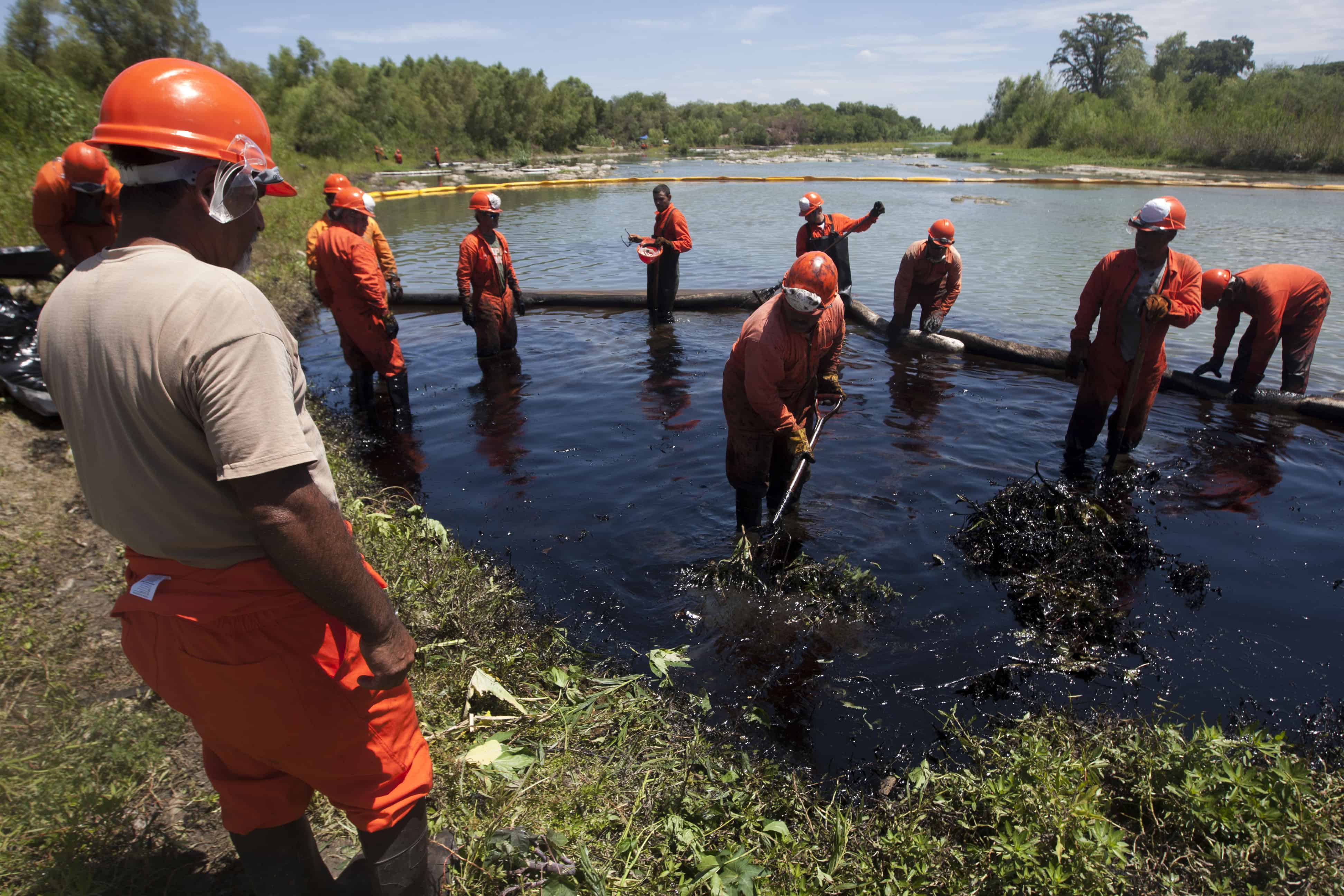A record 79 private companies, including Engie of France and Pacific Exploration and Production Corp. of Colombia, have qualified to bid in the Dec. 15 auction now that Mexico’s new laws have opened oilfield development to private companies. That compares with 20 companies that qualified to bid in the country’s Sept. 30 offshore auction, underscoring how the chance to enter Mexico’s nascent oil market is outweighing risks.
“I’m not too concerned about security at this stage,” said Stefan Olivier, CEO of London-based MX Oil. “We are very interested in Mexico and we are going to be bidding” in the Dec. 15 auction.
Mexico’s state-owned oil producer Petroleos Mexicanos documented 3,600 illegal taps on pipelines in 2014, a 40 percent increase from the 2,627 a year earlier, costing the company an estimated $792 million in stolen fuel. The taps are used to siphon out oil and gasoline in transit.
Pilfering more than quadrupled from 2009 to 2013, according to Pemex, as the company is known, which partially attributes its 11-year slide in crude production to the increase in illegal taps. Mexico is on pace to exceed a record 4,000 incidents of pipeline theft this year, up from 710 in 2010.
Through the first eight months of the year, there were 3,547 illegal pipeline fuel taps reported, according to data gathered by Pemex, including 1,168 in the states where the 25 onshore fields will be auctioned next week. Two of the fields up for auction are located in the northern Tamaulipas state, which reported 561 incidents of pipeline theft through August, the most of any Mexican state. A Pemex press official sent the figures for pipeline theft in an email on Wednesday.
Fifty-three of the 79 companies qualified to bid in the coming auction are based in Mexico. The fact that local participation has increased in the onshore auction suggests the security risks aren’t seen as a deterrent to potential bidding, according to Duncan Wood, director of the Mexico Institute at the Woodrow Wilson International Center for Scholars in Washington.
“Every company knows that security will increase the cost of operating in Mexico, but they don’t see it as a deal-breaker in any way,” Wood said in a phone interview. “The Mexican companies already know the lay of the land. They have been operating in the country for years and are familiar with the way things work.”
The additional expense required for security measures onshore might be offset by the low cost of entry and favorable royalty terms offered by the government, according to Tim Samples, a law professor and Mexican-energy analyst at the University of Georgia in Athens. The Finance Ministry and National Hydrocarbons Commission announced Nov. 30 that no minimum investment will be required for bidders, and that royalty levels on the fields will range from 1 to 10 percent.
“These are bargain-bin fiscal terms here. They are rock bottom,” Samples said. “In this price environment with the on-the-ground realities of producing onshore in Mexico, it might be a necessity” for the government to lure companies with favorable financial terms.
The onshore oil fields for auction are located in the states of Nuevo Leon and Tamaulipas, in the northern Burgos basin, the eastern coastal state of Veracruz, and the southern Chiapas and Tabasco states. In April 2014, a hotel housing Weatherford International Ltd. oil workers in Ciudad Mier, Tamaulipas, was riddled with gun shots in an area of the country known for drug gangs.
“The most salient operational risk relates to extortion,” Grant Sunderland, Latin America analyst at Verisk Maplecroft, wrote in an emailed response to questions. “There is a considerable risk that drug-trafficking organizations will ‘follow the money,’ and as oil and gas investment ramps up, foreign companies could become targets of crime.”
Mexico’s government has proven it can provide adequate security forces for large-scale infrastructure projects such as onshore oil drilling, according to Randall Connally, chief executive officer at Northcote Energy of London. Northcote, which is building a facility in the Tabasco state, elected not to participate in the onshore oil auctions.
“Anywhere in the world a certain amount of crime is to be expected,” Connally said in a Dec. 3 phone interview from Dallas. “The Mexican government has control of the vital components of their national infrastructure. Once the field is operating, especially if it’s a gas field, I don’t think you need to worry about organized crime.”
© 2015, Bloomberg






